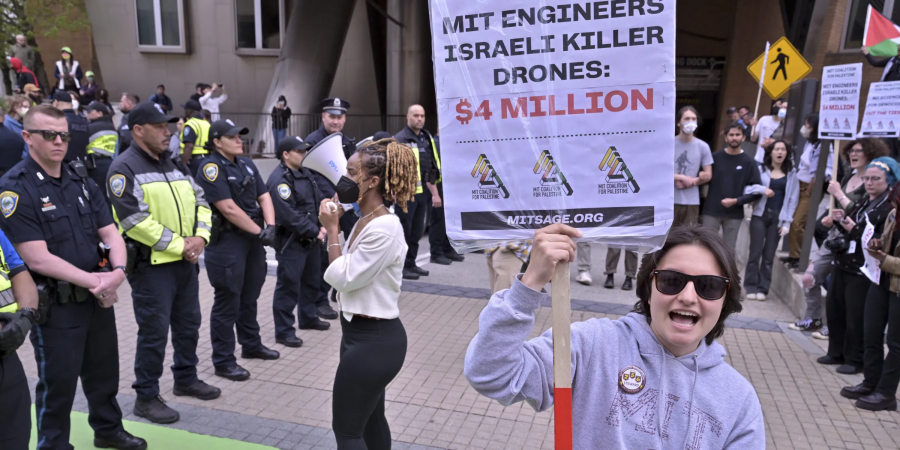Gambiaj.com – (Massachusetts, United States) – The Massachusetts Institute of Technology (MIT) has received more than $3.7 million from the Israeli Ministry of Defense since 2015 to fund research into advanced warfare technologies, according to a new report by the MIT Coalition for Palestine. The findings, published last month, spotlight projects involving drone swarms, underwater surveillance, and missile detection, and have intensified ongoing campus protests against the university’s partnerships with the Israeli military.
The report, authored by a coalition of 19 student and faculty groups, reveals that some of the research projects are directly tied to military contractors such as Elbit Systems, which supplies most of Israel’s armed drones, and Maersk, a key player in military logistics. It also uncovers MIT’s collaboration with U.S. defense companies like Lockheed Martin, Raytheon, and Boeing, which supply weapons and support for Israel’s operations in Gaza.
Student Backlash and Administrative Censorship
MIT administrators are under increasing scrutiny for their handling of student activism related to the Gaza conflict. Protests erupted in late 2023, part of a national wave of demonstrations against Israel’s military campaign, and calls for MIT to divest from research benefiting the Israeli military have grown louder.
Despite this, the university has resisted such demands. A March referendum saw 63% of MIT undergraduates vote in favor of advocating for a ceasefire in Gaza, one of the highest-turnout elections in the school’s history. In April, the MIT Graduate Student Union passed a resolution urging the university to sever all research ties with the Israeli Ministry of Defense.
However, students allege that the administration has actively suppressed dissent. Following the coalition’s publication of grant information detailing these partnerships, MIT restricted access to its internal grant-tracking software, according to Rich Solomon, a graduate student and report co-author. Additionally, MIT barred student protesters from campus and suspended several, cutting their access to housing and meal plans.
A student-run publication, The Tech, also retracted an article examining the involvement of Daniela Rus, director of MIT’s Computer Science and Artificial Intelligence Laboratory, in Israeli-funded research. The article detailed how Rus’s work in developing algorithms for “multirobot security defense and surveillance” was partially funded by the Israeli Ministry of Defense. The publication’s opinion section was later suspended.
Ethical Concerns Surrounding Research
The report sheds light on projects like underwater surveillance systems designed to enforce Israel’s maritime blockade of Gaza and AI-powered drones capable of psychological warfare. It also criticizes MIT’s partnerships with corporations accused of enabling human rights abuses, including Google and Amazon.
“MIT has a responsibility to pursue research that affirms life and refuses to allow militaries to launder their reputations while committing mass murder,” the coalition wrote.
MIT spokesperson Sarah McDonnell declined to comment on the report’s specifics but reiterated the university’s commitment to free speech and student well-being. She emphasized that decisions regarding partnerships are made in compliance with university policies and U.S. laws.
Broader Context and Selective Disengagement
Critics argue that MIT’s continued partnerships with the Israeli military contradict its stance on other international collaborations. In 2020, MIT ended its relationship with Saudi Aramco following the murder of journalist Jamal Khashoggi. It also maintains stricter assessments for collaborations with entities in China and Saudi Arabia to avoid legitimizing human rights abuses.
“Why should MIT engage in research sponsorships with the Israeli government at all, given the scale of its human rights abuses in Palestine?” the coalition questioned.
As campus protests continue and calls for transparency grow, the spotlight remains on MIT’s controversial role in advancing military technologies with potentially devastating applications in conflict zones like Gaza.










